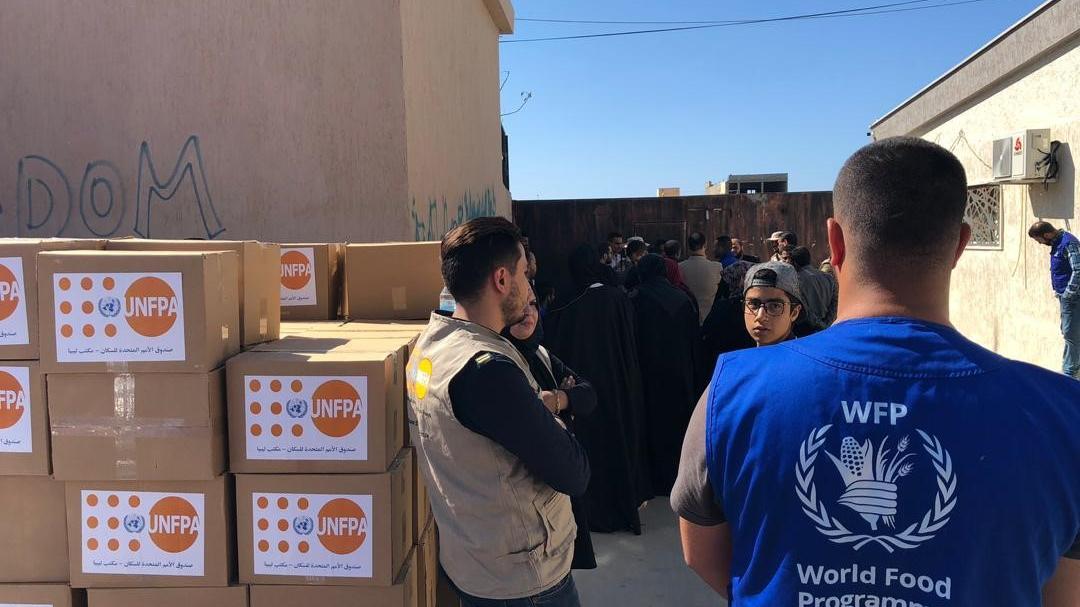Tripoli/Tunis - In response to the ongoing intense clashes in Tripoli, four United Nations agencies launched the Rapid Response Mechanism(*) for the first time in Libya to provide assistance to vulnerable displaced families. The International Organization for Migration (IOM), the United Nations Population Fund (UNFPA), the United Nations Children’s Fund (UNICEF) and the World Food Programme (WFP) launched the Mechanism, which brings together local partners and agencies’ expertise and enables access to intuitively and rapidly provide the required assistance.
Through the Rapid Response Mechanism, key packages including food parcels, hygiene kits, dignity kits, baby kits and non-food items are delivered to families in collective shelters or urban settings. All items are necessities that ensure the basic and immediate needs of recently displaced people are met.
As of 24 April, the Rapid Response Mechanism has reached almost 9,500 newly displaced people including 3,802 children and 2,470 women and girls and will continue to assist populations affected by the ongoing conflict.
The clashes in Tripoli continue to force displacement as they intensify, with the latest displacement figures showing that almost 35,000 individuals have been displaced from their homes since the onset of the fighting on 5 April 2019.
The Rapid Response Mechanism is a worldwide mechanism initiated during times of conflict to deliver immediate, life-saving supplies to families on the move. The mechanism forms the initial emergency first-line response, which is then quickly followed up by sector-specific responses.
(*) The Rapid Response Mechanism is an operational, programmatic and partnership model designed to enhance capacity of the Sectors to respond in a timely, coordinated and standardized manner to the needs of populations made vulnerable by displacement, disease and/or natural disaster in humanitarian/emergency settings.
It is a tool for inter-agency coordination mechanisms and Sectors to provide critical quick impact, lifesaving, multi-sectorial response to highly vulnerable persons in the absence of ready humanitarian sectorial capacity or presence on the ground. At all stages RRM will ensure the safety and dignity of the beneficiaries of its response.


